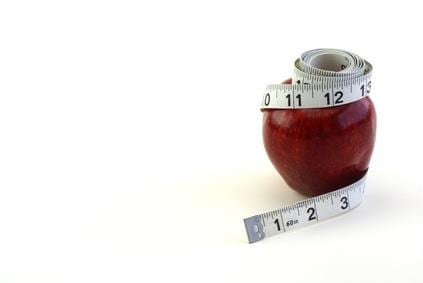With the dizzying array of diet pills and weight-loss aids available in every drug store, finding your way through the maze of what works, what doesn’t and what may actually harm you can be tough. You’ve probably heard of Alli, one of those hip new weight-control products that is supposed to be the easiest way ever to help you lose weight. It basically stops your body from absorbing the fat from the food you eat. How could you go wrong? Experts from the Mayo Clinic and the Duke Diet and Fitness Center agree that while Alli can contribute to a decrease in weight, it will only do so effectively with a low-fat, low-calorie diet and regular exercise plan.
About Alli
Alli is the brand name for a lesser-strength version of the drug orlistat. According to 3dchem.com, orlistat is a prescription drug used to treat extreme obesity. Unlike orlistat, though, Alli is for those who aren’t wildly overweight, but who are just having trouble getting rid of those five or 10 (or 20 or 30) pounds left from Baby or from some inadvisable holiday indulgences. Alli is available over-the-counter to adults 18 and older and it should be used along with exercise and a strict diet.
How it Works
The key to Alli’s function lies in the function of orlistat. Orlistat is a chemical compound whose job is to inhibit the function of pancreatic lipase. Pancreatic lipase is the enzyme in your digestive system that breaks down triglyceride compounds (otherwise known as fat molecules when they’re at home). When they’re broken down, they can be absorbed into the bloodstream through the walls of your intestine. Orlistat stops pancreatic lipase from doing its work on the fat molecules so they can’t be digested–they end up passing right through your digestive system and out the other end. In fact, in an interview with ABC News, Dr. Howard Eisenson said that the amount of orlistat in Alli can cause about 30 percent of the fat you consume to pass right out of the digestive tract unabsorbed. Talk about having your cake and eating it, too.
Does it Really Work?
Sounds too good to be true, right? According to research reported by the Mayo Clinic and 3dchem.com, it is too good to be true. The Mayo Clinic says that Alli use is not linked to large amounts of weight loss–only up to three pounds more than you would lose by implementing that boring old diet and exercise program you’ve been avoiding while hoping for a miracle. And clinical studies of Alli recorded by 3dchem.com indicate that while the drug can promote weight loss (a 5 percent decrease in body mass in one study; a 10 percent decrease in another), not all of the weight lost was body fat. Additionally, many of the people in the study regained much of the weight they had lost after they stopped using Alli.
How to Make Alli Work Better
Alli isn’t just one big scam, though–it just needs to be used along with a strictly monitored diet and a regular exercise program. Drugs.com reports that Alli works great if you eat three low-calorie meals a day and make sure that the amount of carbohydrates, protein and fat at each meal is roughly even throughout the course of the day. Your fat intake is the one you really need to watch. The Mayo Clinic specifies that you shouldn’t eat more than 15 g of fat with each meal while you’re taking Alli. That isn’t just to make you lose weight–if you eat too much fat, it can cause a number of rather unpleasant side effects as it is making its way through your digestive system. Exercise is another indispensable component of the Alli weight-loss equation. It’s everyone’s fantasy to lose weight without a bit of effort. But a fantasy is exactly what that idea is: Weight loss does require work. Alli sets you on that road to weight loss, but you’ll have to get yourself moving to help it along.
Problems with Alli
Alli can definitely work for you if you eat sensibly and exercise consistently. Even if you do all of this, however, you still might experience side effects. The most common complaints with Alli are diarrhea, urgent and often uncontrollable loose-bowel movements and gas that is often accompanied by oily discharge. You can lower the probability of these side effects occurring if you stick to a low-fat diet, but you may still suffer from them even if you’re a golden girl and do everything right. You should completely avoid Alli if you have a history of gallbladder problems, suffer from diabetes or any thyroid disorders, or if you’ve ever had an organ transplant or are currently taking the medication cyclosporine. You should also steer clear of Alli if you’ve ever had liver problems: the Mayo Clinic reports that in 2009, the U.S. Food and Drug Administration began reviewing the possibility that orlistat use was contributing to liver damage and disease in some users. Watch for signs of jaundice and brown urine, which could be signs of liver damage.
Photo Credit
- apple with measuring tape image by Kathy Burns from Fotolia.com





